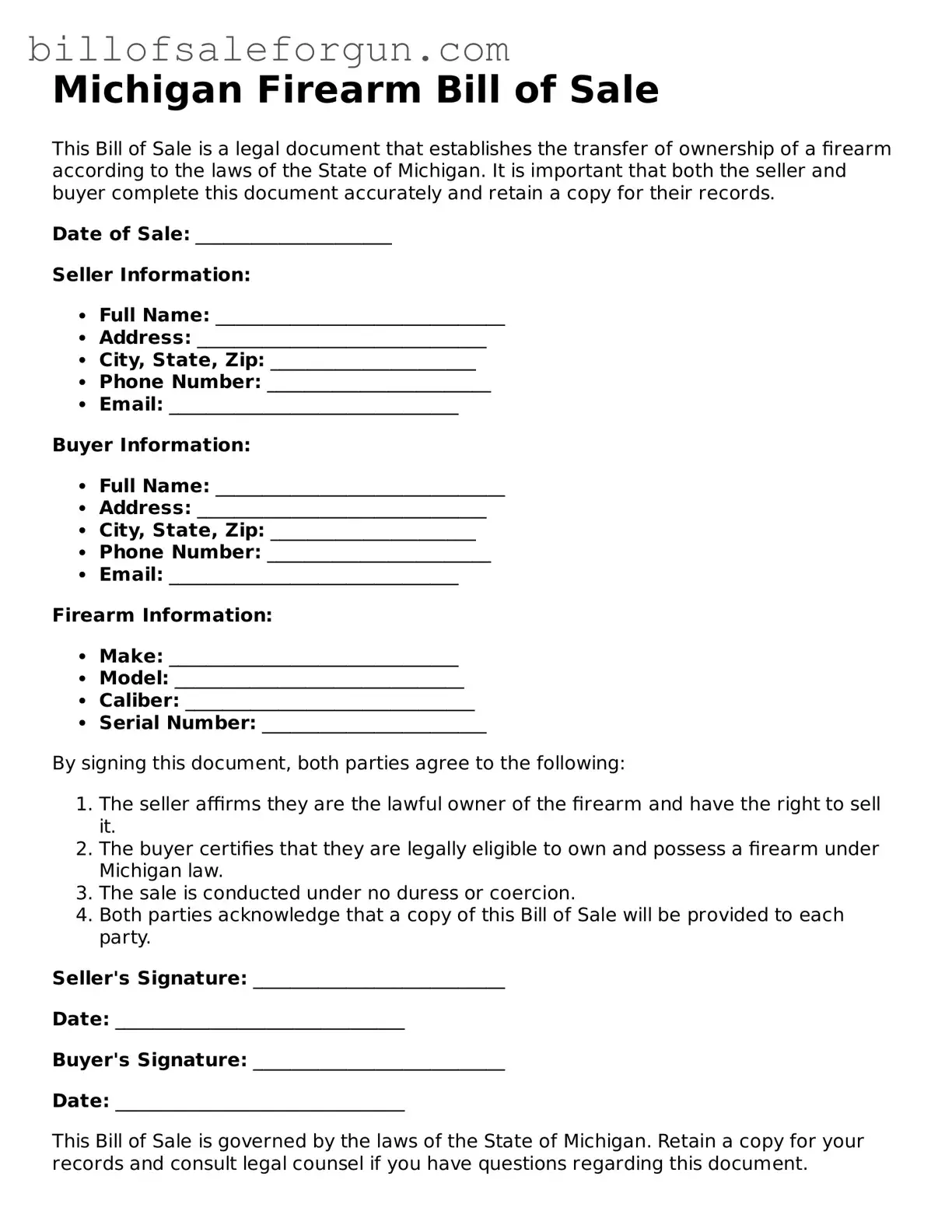Similar forms
The Michigan Firearm Bill of Sale form is similar to a standard Bill of Sale used for various personal property transactions. Just like the firearm bill, a standard Bill of Sale documents the transfer of ownership from one party to another. It typically includes details about the buyer and seller, a description of the item being sold, and the sale price. Both documents serve as proof of the transaction, helping to protect the rights of both parties involved. This can be crucial in case of disputes or questions about ownership in the future.
Another document that shares similarities is the Vehicle Bill of Sale. This form is used when buying or selling a vehicle and includes essential information such as the vehicle identification number (VIN), make, model, and year. Like the Firearm Bill of Sale, it requires the signatures of both the buyer and seller. Both documents are important for establishing legal ownership and can be used to register the vehicle or firearm with the appropriate authorities. They also help ensure that the transaction complies with state laws.
Understanding the importance of various legal documents is key for ensuring compliance and proper ownership transfer. For instance, the Florida Employment Verification form is essential for employers to confirm the employability of their workers, ensuring they are authorized to work in the United States. For more details on such forms, you can visit smarttemplates.net, which provides access to templates that simplify this process.
A Lease Agreement is another document that has parallels with the Firearm Bill of Sale. While it pertains to the rental of property rather than a sale, it still outlines the terms of a transfer of rights. A Lease Agreement specifies the responsibilities of both the landlord and tenant, similar to how a Bill of Sale outlines the obligations of the buyer and seller. Both documents require clear terms and signatures, providing legal protection for all parties involved in the transaction.
Lastly, a Power of Attorney (POA) form can be compared to the Firearm Bill of Sale in terms of authority transfer. A POA allows one person to act on behalf of another in legal matters, which can include the sale of property. While the Firearm Bill of Sale transfers ownership of a firearm, a POA transfers decision-making rights. Both documents must be executed with care, ensuring that all parties understand their rights and responsibilities. They play vital roles in facilitating legal transactions and protecting interests.
